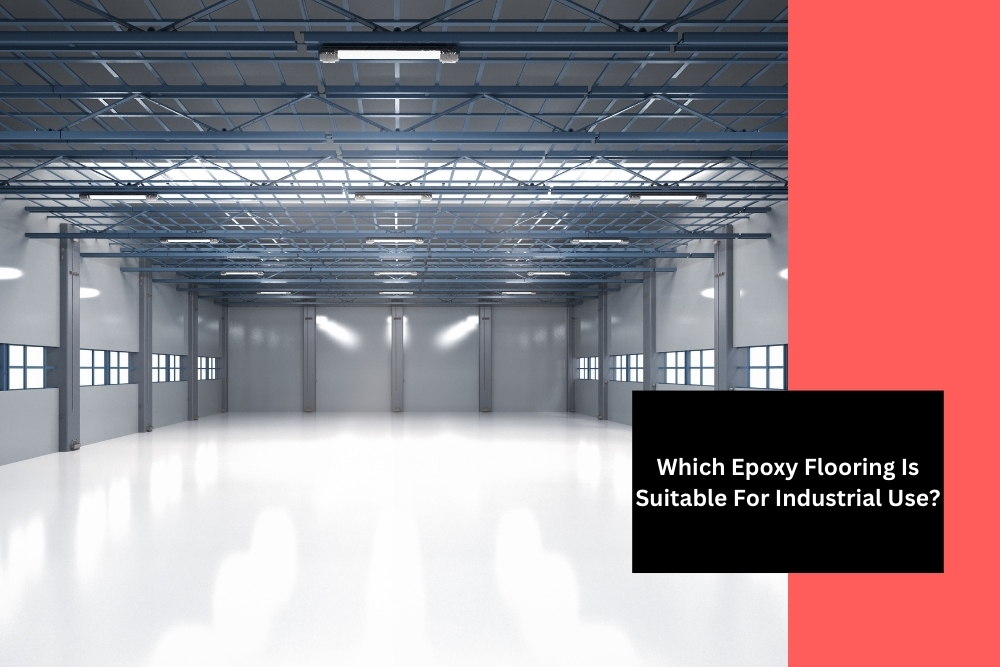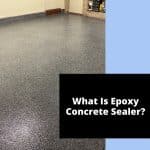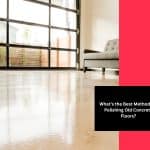Are you sick of floors that can’t handle the rough and tumble? Especially in industrial zones where the big machines rumble and never stop, epoxy flooring is your new best friend. It’s built tough to last long. It’s super strong, stands up to chemicals like a champ, and is easy to keep clean—win, win!
This guide is your cheat sheet for all things epoxy floors! From the different types to the super tough stuff to grippy finishes, it covers basically everything you need to turn your space into an awesome, safe, and smooth-running zone.
What makes this flooring ideal for industrial settings?
Epoxy floors are the toughest of industrial flooring. Here’s what makes them so darn good:
- More challenging than a tucker bag: It can handle a beating. Heavy machinery and forklift traffic – no worries, mate! It’s super durable and won’t crack or chip easily.
- Chemical spills? No worries: Epoxy laughs in the face of most chemicals, including oils, solvents, and even some acids. Perfect for workshops, factories, or anywhere spills are a concern.
- Cleaning: These floors are a breeze to keep clean. Just sweep them regularly and mop them with a mild cleaner. No harsh chemicals or fancy cleaning routines are needed.
- Safety first, always: By adding a bit of grit, it can be made slip-resistant, keeping your crew safe and sound—even in wet or oily areas.
- Looks aren’t everything, but they do help: They come in various colours and even some dazzling finishes like metallic. Who says your industrial space can’t look sharp, eh?
How do you choose the right epoxy floor for your industry?
Picking the right industrial epoxy floor depends on what your work site throws at it:
- Traffic on the floor: Heaps of foot traffic? Light machinery? Or forklifts and trucks? Thicker, stronger epoxy is best for heavyweights.
- Nasty chemicals lurking around: Identify the kind of chemicals you use. Different epoxies offer varying resistance to specific nasties, like acids or alkalis.
- Smooth sailing or a bit bumpy: Do you need a super-smooth surface for easy cleaning, or is a textured finish for better grip more your style?
Can epoxy flooring withstand heavy machinery and forklifts?
Absolutely! High-strength epoxy is designed to handle heavy machinery and forklift traffic like a champ. Here’s how it tackles the challenges of heavy machinery and forklift traffic:
- No worries about weight: High-strength epoxy is thicker and more rigid than regular epoxy. This means forklifts and heavy machinery won’t leave a dent – they’ll just bounce right off.
- Built to last: Unique ingredients act like tiny bodyguards, keeping the floor safe from scratches and dings caused by heavy equipment.
- No worries about forklift beatings: High-strength epoxy can handle all the coming and going of forklifts and trucks without sweat. It also keeps the floor nice and level, which is good news for your machinery.
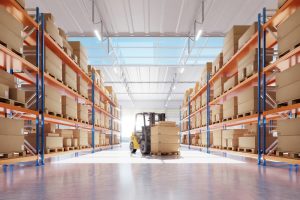
Epoxy is tough, but even the most vital stuff needs to be installed properly to handle all that heavy machinery. If you plan on installing the flooring yourself, taking an epoxy floor coatings training course can equip you with the knowledge and skills for a successful application.
What are some popular epoxy floor options for industrial use?
Industrial flooring comes in a few different varieties, each with its strengths:
- Self-levelling: It creates a smooth, seamless surface – perfect for areas that need to be sparkling clean and easy to maintain.
- Epoxy mortar systems: For real heavy-duty situations with extreme weight and impact, mortar systems are the ultimate solution. Think industrial fortresses!
- Flake epoxy: This option adds a bit of personality to the epoxy, with coloured flakes mixed into it. It’s practical (slip-resistant!) and looks pretty darn good – ideal for workshops, showrooms, or lighter production areas.
- Metallic: Feeling fancy? Metallic epoxy creates a stunning, high-end finish that’ll make your industrial space look like something from a design magazine.
Does epoxy flooring offer slip resistance for industrial workplaces?
Slip resistant coatings are effective for walkways, and epoxy flooring offers this crucial safety feature for industrial workplaces. Here’s how:
- Gritty greatness: Adding a textured aggregate like quartz sand creates a rougher surface with superior traction, especially in wet or oily conditions.
- Topical champions: Another option is applying a special anti-slip coating on the cured floor. This provides additional grip and can be reapplied to keep things safe.
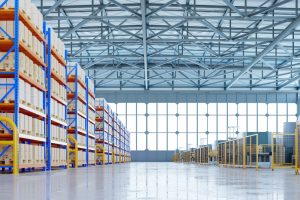
What are the costs associated with epoxy flooring for industrial use?
The price of industrial flooring kind of depends on a few things, like:
- Size of the area: Bigger space means more flooring is needed, which means more flooring is required, which means more money. That makes sense.
- Chosen type: Self-levelling epoxy tends to be more expensive than standard options.
- Surface preparation: If your existing floor needs extensive repairs before the epoxy can be applied, expect additional costs.
- Labour costs: The job’s complexity and the installer’s experience will affect the labour cost.
Are there any environmental considerations for industrial epoxy flooring?
Epoxy is a ripper for industrial floors, but heads up—some types can be a bit rough on the environment. They might have these nasties called VOCs, which aren’t good for Mother Nature. But hey, there are good eggs in the epoxy world, too!
- Water-based legends: These eco-warriors have fewer VOCs, making them a top choice for keeping things green. This is a double win since epoxy is a good choice for warehouse flooring!
- Ask about green stuff: Are you looking for an epoxy bloke? When you visit companies, ask about their eco-friendly options.
Upgrade your industrial floor today!
Choosing the right industrial epoxy flooring solutions can be a game-changer for your business. With its exceptional durability, chemical resistance, ease of maintenance, and safety features, epoxy flooring keeps your workplace running smoothly and looking sharp.
Here at Ultimate Epoxy Floors, we’re passionate about helping businesses find the perfect epoxy solution for their needs. Our team of experts can guide you through every step of the process, from choosing the right type to installation and maintenance. We use only the highest quality, Australian-made epoxy products that are harsh, safe, and environmentally responsible.
Contact Ultimate Epoxy Floors today for a free consultation and quote. Let’s create the ultimate industrial floor for your business!

